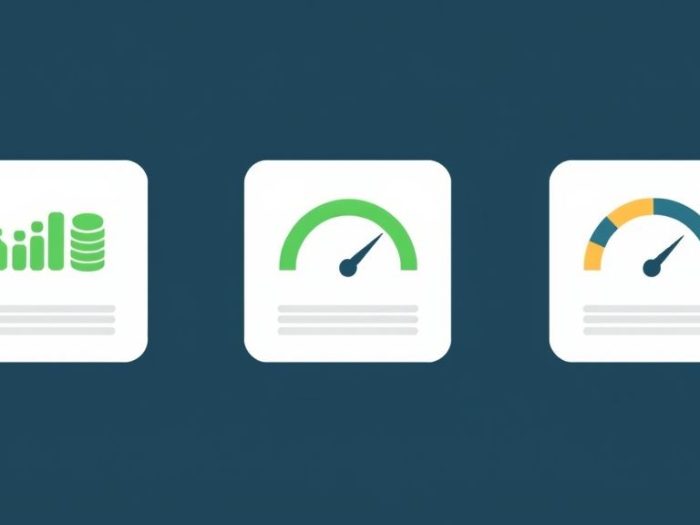ESG (Environmental, Social, and Governance) investing is gaining momentum, and ETFs
(Exchange-Traded Funds) provide a convenient way to incorporate ESG factors into your
portfolio. For long-term investors, low expense ratios are crucial for maximizing
returns. This article explores the best ESG ETFs with low expense ratios, offering a
combination of sustainability and cost-effectiveness.
Understanding ESG ETFs
ESG ETFs are funds that track indices with specific ESG criteria. They offer diversified
exposure to companies that meet certain environmental, social, and governance standards.
Why Low Expense Ratios Matter for Long-Term Investors
Expense ratios are the annual fees charged by ETFs to cover operating expenses. For
long-term investors, even small differences in expense ratios can significantly impact
returns over time due to the compounding effect.
Key ESG Factors Considered by ETFs
-
Environmental:
- Carbon emissions
- Renewable energy use
- Pollution prevention
- Resource efficiency
-
Social:
- Labor practices
- Product safety
- Supply chain ethics
- Community relations
-
Governance:
- Board independence
- Executive compensation
- Corporate ethics
- Shareholder rights
Best ESG ETFs with Low Expense Ratios
(Disclaimer: This information is for educational purposes only and should not be
considered financial advice. ETF performance is subject to market fluctuations. Conduct
thorough research before investing.)
1. iShares ESG Aware MSCI USA ETF (ESGU)
- Expense Ratio: (Insert current expense ratio – typically very low)
-
Focus: Tracks an index of large- and mid-cap U.S. companies with strong
ESG profiles. -
Why it’s a Top Choice: Broad market exposure, low cost, and strong ESG
methodology.
2. Vanguard ESG U.S. Stock ETF (ESGV)
- Expense Ratio: (Insert current expense ratio – typically very low)
-
Focus: Tracks a broad market-cap-weighted index of U.S. companies
screened for ESG criteria. -
Why it’s a Top Choice: Very low cost, diversified exposure, and aligns
with Vanguard’s reputation for low-cost investing.
3. (Add 3-5 more examples here. Be sure to research and add specific data and detailed descriptions for each ETF.)
strengths.
- Global ESG ETFs
- Specific ESG theme ETFs (e.g., clean energy)
- ETFs focusing on different market cap sizes
Factors to Consider When Choosing ESG ETFs
-
Expense Ratio: Prioritize ETFs with the lowest expense ratios to
maximize long-term returns. -
ESG Methodology: Understand how the ETF screens and selects
companies based on ESG criteria. -
Index Tracking: Evaluate how closely the ETF tracks its underlying
index. -
Asset Allocation: Ensure the ETF aligns with your desired asset
allocation and diversification strategy. -
Liquidity and Trading Volume: Choose ETFs with sufficient liquidity
and trading volume.
Conclusion
ESG ETFs offer a convenient and cost-effective way for long-term investors to incorporate
sustainability into their portfolios. By prioritizing ETFs with low expense ratios and
carefully evaluating their ESG methodology, you can potentially achieve both financial
returns and positive environmental and social impact.
Related Keywords
ESG ETFs, low expense ratio ESG ETFs, best ESG ETFs, sustainable ETFs, ethical
ETFs, socially responsible ETFs, ESG investing, sustainable investing, ESG fund
comparison, ESG portfolio.
Frequently Asked Questions (FAQ)
1. What are ESG ETFs?
ESG ETFs are Exchange-Traded Funds that track indices with specific
Environmental, Social, and Governance criteria.
2. Why are low expense ratios important for long-term investors?
Low expense ratios minimize fees and maximize returns over the long term due to
the compounding effect.
3. What are the key ESG factors considered by ETFs?
Key ESG factors include environmental impact (e.g., emissions), social
relationships (e.g., labor practices), and corporate governance (e.g.,
ethics).
4. What is the iShares ESG Aware MSCI USA ETF (ESGU)?
ESGU tracks an index of large- and mid-cap U.S. companies with strong ESG
profiles.
5. What is the Vanguard ESG U.S. Stock ETF (ESGV)?
ESGV tracks a broad market-cap-weighted index of U.S. companies screened for
ESG criteria.
6. What should I look for in an ESG ETF’s methodology?
Understand how the ETF screens and selects companies based on ESG factors to
ensure it aligns with your values.
7. What is index tracking?
Index tracking refers to how closely the ETF’s performance mirrors the
performance of its underlying index.
8. Should I diversify my ESG ETF portfolio?
Yes, diversify your ESG ETF portfolio across different sectors and market cap
sizes to reduce risk.
9. Are ESG ETFs more expensive than traditional ETFs?
Expense ratios can vary. Some ESG ETFs have very low expense ratios, while
others may be slightly higher.
10. Are ESG ETFs a good investment for all investors?
ESG ETFs can be a good option for investors seeking both financial returns
and positive environmental and social impact, but it depends on individual
preferences and investment goals.



